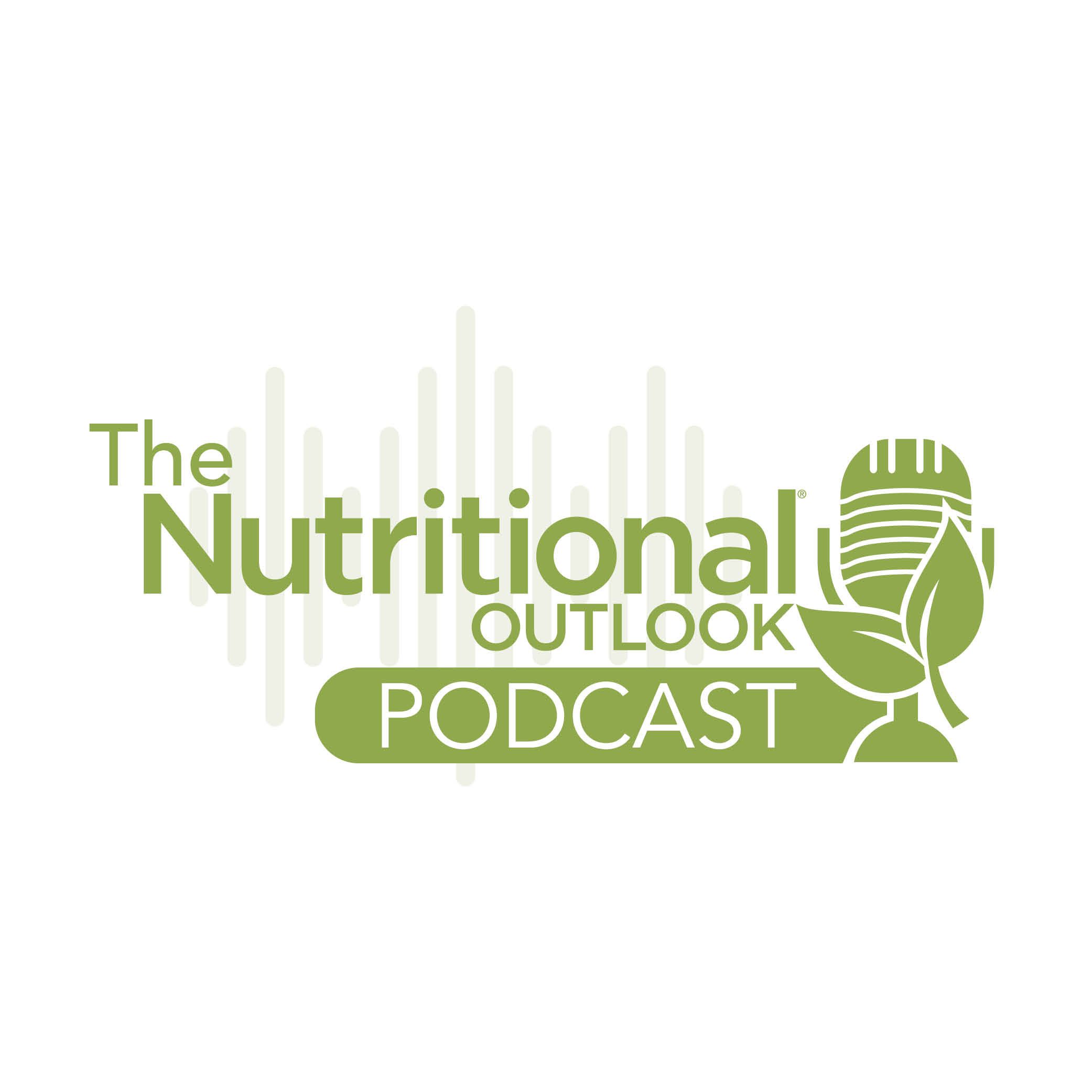Listen Now!

Don’t miss the January episode of The Nutritional Outlook Podcast in which we interview Scott Dicker and Haleigh Resetar of SPINS about all of our editors' picks for 2023 Ingredients to Watch.
Ashwagandha saw incremental sales gains in 2022.
Ashwagandha’s had more than just a good run in the U.S. herbal supplements market these past few years. In 2021, ashwagandha “experienced the strongest mainstream sales growth…for the second consecutive year,” according to HerbalGram’s 2021 Herb Market Report.1 “Consumers spent 225.9% more on ashwagandha supplements in 2021 compared to the previous year, with sales totaling $92,326,926—an increase of nearly $64 million from 2020,” the report noted. Growth in the natural channel was high, too. According to SPINS (Chicago), ashwagandha sales in the U.S. natural supplements channel grew 21% in 2021.
Last year looked different. Ashwagandha gains were incremental in 2022. For instance, sales rose slightly—2%—in the U.S. natural supplements market, according to SPINS.
Are ashwagandha’s prospects still good absent those incredible spikes seen earlier? Yes, sources say.
After all, ashwagandha’s best-known benefits are mood support, stress relief, and sleep. It just so happens that these three categories are expecting strong growth. Ashwagandha helped draw customers to these markets to begin with, points out Scott Dicker, senior market insights analyst at SPINS.
He calls ashwagandha’s surging popularity in recent years remarkable because the ingredient isn’t new to market. “It’s not being used for something that it wasn’t previously used for,” he says. “It just kind of really caught on, and a lot of that was [because] there are some branded ingredients now that are doing really well [and] there are a few big brands that brought it on and really made it a mainstay and a household name.”
One of those brands is Gaia Herbs. The company believes that the growing stress, mood, and sleep markets will benefit an ingredient like ashwagandha in the long run.
“As more people return to normal life, consumers are seeking natural remedies such as stress and sleep products. Herbal supplements like ashwagandha will continue to become more popular as the market grows,” predicts Antonia Nguyen, Gaia’s director of product portfolio and strategic partnerships.
Still, ashwagandha products should be prepared to evolve as consumers begin exploring other ingredients. It’s already happening, says Haleigh Resetar, corporate communications specialist at SPINS.
“Ashwagandha is definitely still a very popular ingredient especially among the stress-, mood-, and sleep-support categories,” she says, “but some of its weakened growth [in 2022] can be attributed to the fact that the natural channel is one of those channels that has constant innovation. New ingredients are always entering the market.” In other words, ashwagandha has competition ahead.

Don’t miss the January episode of The Nutritional Outlook Podcast in which we interview Scott Dicker and Haleigh Resetar of SPINS about all of our editors' picks for 2023 Ingredients to Watch.
Ashwagandha will increasingly find itself in blends with other ingredients. Rachel Kreider, senior director of technical product and content design at GNC, says her company sees demand for both. “We’ve seen similar growth patterns for both ashwagandha as a single-ingredient product as well as products that include ashwagandha as part of an overall formula.”
As more shoppers try sleep, stress, and mood products, they’ll keep running across ashwagandha. “What ashwagandha has going for it is that there’s not a single ingredient right now that you would associate with the mood-support or the stress-relief category,” says SPINS’s Dicker. “Ashwagandha, in the best-case scenario, could become that kind of first-try ingredient introduction to the stress-relief [and] mood-support category.”
Consumers might also start to appreciate its other benefits such as cardiovascular and blood sugar support, Resetar says.
GNC’s Kreider adds, “Ongoing research has identified ashwagandha as something that may positively influence both emotional and physical stressors and support the body’s natural inflammatory response, its antioxidant properties, and immune response.”
Brian Tanzer, MS, senior manager of scientific and regulatory affairs at The Vitamin Shoppe, agrees that ashwagandha caters to many of consumers’ key health concerns today. “Ashwagandha has been around for quite some time, and there are several studies showing its benefits related to stress response, immune health, energy, and sleep—all things people were looking to address during the past three years. I believe the use of ashwagandha will continue as many have seen noticeable improvements when using it.”
He cautions marketers not to oversell ashwagandha as a miracle ingredient, though, if they want to preserve its credibility and longevity. “My one concern is I don’t want people to think that it is a panacea,” he says. “If lifestyle factors such as diet, exercise, sleep, and stress management aren’t addressed, one cannot maximize the benefits of ashwagandha. It is our responsibility as industry leaders to remind our customers that lifestyle is the key to overall health and wellness. Supplements like ashwagandha can play a role in helping us achieve it but cannot compensate for poor lifestyle choices.”
Corey Schuler, FNP, CNS, CNSC, DC, director of medical science and product innovation at Gaia Herbs, likewise says, “The popularity of ashwagandha is catching up to its traditional use, and that is welcomed, in my opinion. The public need for support for sleep, mood, and stress response is very real. My hope is that trusted brands like Gaia Herbs take the lead, the science is not abused, and the public scrutinizes unscrupulous products and brands.”
Other adaptogens may one day thank ashwagandha for the opportunities it’s creating. Resetar says ashwagandha’s popularity “really opens up room for growth in other ingredients and mainly other adaptogens.” Whether ashwagandha is further eclipsed by newcomers in mood, stress, and sleep remains to be seen. “There’s always going to be introduction of new ingredients that could potentially push ashwagandha into more of that stagnated [growth] that it’s experiencing now,” says Resetar.
Still, there’s lots to keep consumers excited about ashwagandha today, and it’s up to enterprising companies to realize it. At GNC, “Some of the early trends we’re keeping an eye on is ashwagandha appearing in more mainstream products like gummies, on-the-go-drinks, and functional foods,” Kreider says.
GNC sees ashwagandha gummies selling well as consumers look for products that feel innovative and convenient, she says. Nguyen at Gaia Herbs agrees. “New formats, like gummies, are especially driving trial of ashwagandha as more products are being released in the formats that consumers want for their supplements,” she says.
On the food side, one unique product is Btein Bars. These “Ayurvedic protein bars” contain ashwagandha root to help “relieve stress and boost energy levels,” the brand says.
And, Dicker adds, “One of the things that bodes well is that you’re starting to see it in beverages.” That usually means an ingredient has made it, he says.
“So when you’re asking if [ashwagandha] is a safe bet that’s going to continue? I think it’s a safe bet,” he says. “The upside is still there. I would not necessarily bet that it’s going to have these 30%, 40%, 50% growth years again. But even just maintaining the growth that it’s had—maintaining the level that it’s at now from where it was just a few years ago—I think showcases that consumers are still very much interested in the ingredient.”
Indeed, says Resetar, “We can definitely expect that consumers will keep it as a staple in their routine because it has had such positive benefits and such positive reviews from people who are using it. I do think it will remain a long-term ingredient for those consumers in the years to come.”
Reference
